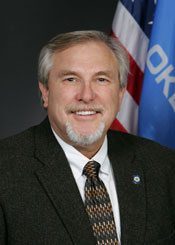BY DAVID PERRYMAN
 Charles Milles Maddox turned 41 in prison doing life without parole, but that wasn’t the beginning. For several weeks after his birth to a 16-year-old Ohio girl, he was simply called “No Name Maddox.” By his 32nd birthday he had spent more than half of his life incarcerated.
Charles Milles Maddox turned 41 in prison doing life without parole, but that wasn’t the beginning. For several weeks after his birth to a 16-year-old Ohio girl, he was simply called “No Name Maddox.” By his 32nd birthday he had spent more than half of his life incarcerated.
In 1969, after he had done his second stint in prison, Charles made international headlines as the head of a group who committed nine high profile murders in California. He went by Charles Manson, a name that he borrowed from a guy his mother had married.
In 1971, Manson was sentenced to death for his role in the murders. Shortly thereafter, the California death penalty was abolished and his sentence was commuted to nine life sentences. A few months later, the California’s death penalty law was reinstated, but the life sentences were not changed back to capital punishment.
Today, Charles Milles Manson remains a resident of Corcoran Prison in California and will turn 81 years old four days after Californians will go to the polls on Nov. 8, to vote on whether to repeal capital punishment [Proposition 62] or put in a fast lane for capital punishment by streamlining the appeal process [Proposition 66].
Also on Nov. 8, Oklahomans will be voting on SQ 776, dealing with capital punishment in the Sooner State. Currently, the Oklahoma Constitution simply says that cruel and unusual punishment shall not be imposed. The state’s authority to impose capital punishment is currently found only in the Oklahoma statutes and nowhere in the Oklahoma Constitution.
SQ 776 would change that. The language that proponents would like to add to Oklahoma’s Constitution is:
“All statutes of this state requiring, authorizing, imposing or relating to the death penalty are in full force and effect, subject to legislative amendment or repeal by statute, initiative or referendum. Any method of execution shall be allowed, unless prohibited by the United States Constitution. Methods of execution may be designated by the Legislature. A sentence of death shall not be reduced on the basis that a method of execution is invalid. In any case in which an execution method is declared invalid, the death sentence shall remain in force until the sentence can be lawfully executed by any valid method. The death penalty provided for under such statutes shall not be deemed to be, or to constitute, the infliction of cruel or unusual punishments, nor shall such punishment be deemed to contravene any other provision of this Constitution.”
In short, what the amendment will do if it passes is: 1] Restate the intent of Oklahomans that they want the death penalty to remain on the books; 2] Confirm the Legislature’s ability to designate the means by which a person may be put to death; and 3] Prevent death sentences from being commuted to life in the event any particular type of capital punishment is determined to be unconstitutional.
Recent polls indicate that many Oklahomans may be interested in repealing capital punishment. Those polls may be a response to Oklahoma’s recent botched executions, but could indicate a change in attitude. Regardless, the final tally on this state question could shed light on the accuracy of those polls.
If a majority of the voters who go to the polls in November vote yes on SQ 776, the new language will be added to the Constitution. If not, the Constitution will remain unchanged.
– David Perryman, a Chickasha Democrat, represents District 56 in the Oklahoma House








Does not deter crime, impose long term sentence instead.